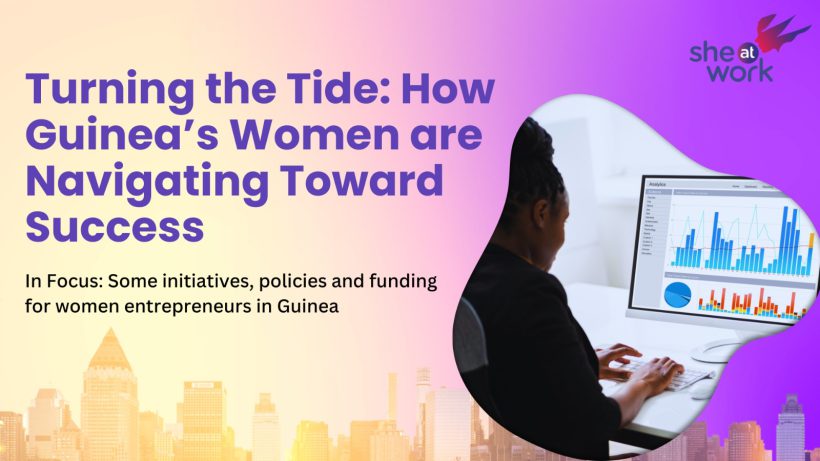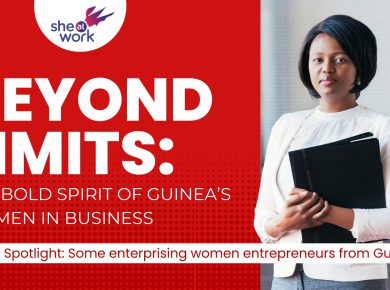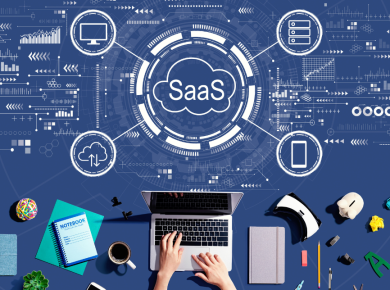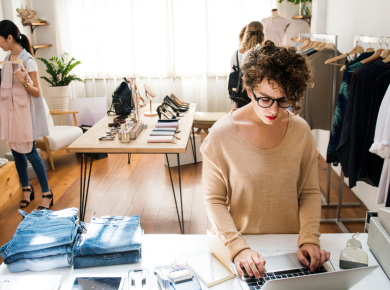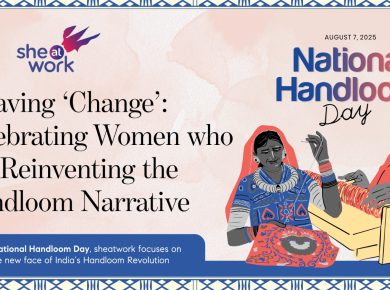In Focus: Somes initiatives, policies and funding for women entrepreneurs in Guinea
#TurnTheTide #WomenEmpowerment #GuineaInBusiness #LeadershipMatters #EmpowerAfrica #SheLeads #LandOfAThousandRivers
Known as “The Land of a Thousand Rivers” for its rich network of waterways, Guinea is a country blessed with natural resources and cultural heritage. Since gaining independence in 1958, the Republic of Guinea has taken some notable steps – toward gender equality, investing in girls’ education & women’s professional training. Yet, despite these commitments, stark gender disparities persist – particularly in rural areas, limiting women’s access to employment, education, and healthcare.
One of the most critical barriers is the low level of female literacy. With only 22% of women able to read and write compared to 44% of men (aged 15 and above), many women face challenges in navigating the modern economy. Early marriage and entrenched domestic roles further hinder their opportunities, reinforcing economic dependence & curbing entrepreneurial ambitions.
Why it’s harder for Guinean women to find work? There’s lack of access to resources, a saturated job market, lack of job preparation, health-related issues and so on.
Unlocking Opportunities in “The Land of a Thousand Rivers”
However, amidst these challenges lies a growing movement to empower women entrepreneurs through targeted resources and initiatives. From microfinance programs offering small loans without heavy collateral requirements, to NGO-led vocational training in agriculture, crafts & retail – Guinea’s women are finding new pathways to economic independence. International partnerships, government-backed skill development schemes, and women’s cooperatives are helping to close the gender gap, offering mentorship, networking & market access.
By equipping women with the right tools, knowledge, and financial support, Guinea can harness the untapped potential of half its population. In a country where rivers flow abundantly, empowering women entrepreneurs could create a ripple effect of economic growth, community development, and social transformation.
Let us explore some resources like initiatives, policies and funding that are available for women entrepreneurs in Guinea.
- Enabel’s Projects in Guinea
Since 2016, Enabel has been active in Guinea and focuses on private sector development and more. Its “Urban Entrepreneurship” programme – aims to strengthen and build Guinean businesses with a potential for growth.
Why focus on existing businesses and not on creating new ones? Private Sector Development is at the heart of Enabel’s portfolio of projects in Guinea. And, some projects are primarily focusing on creating new businesses. But with Urban Entrepreneurship programme – they aim to strengthen the economic fabric of the cities and to create local added value and jobs.
To achieve this goal, they rely on small businesses with a potential for growth. Often these businesses have been around for some years and have developed a product or service for which there is a market. But they stay put and do not grow.
The idea here, is to help them unleash their potential and take the next step.
Enabel is the Belgian agency for international cooperation. Enabel’s new 2030 Strategy was built on the basis of their DNA and key strengths that over time have forged their legitimacy with various partners. And, they have identified 4 key strengths that they want to maintain to fulfil their mission for the future: partnerships, co-creation, proximity & expertise.
Enabel aims to improve the economic, technical and social performance of micro, small and medium-sized enterprises in 3 areas: the agricultural sector, targeting the pineapple, mango and potato value chains; urban entrepreneurship, particularly in New Information and Communication Technology (NICT) and incubators; and women entrepreneurship.
They focus on capacity development in growth sectors, particularly of NGOs, small enterprises and civil society. It entails consultation workshops and needs studies and solutions to improve productivity.
Their expertise covers many different areas like – Education, training & decent employment, Energy, Digitalisation, Gender equality and inclusion, Governance, Health, Innovation Hub, Private sector, Sustainable agriculture and food systems, Sustainable trade, Water & sanitation.
https://www.enabel.be/country/guinea/
- International Trade Centre (ITC) Programme – INTEGRA
The International Trade Centre (ITC) programme – seeks to create jobs & economic growth by encouraging, educating prospective business owners
With more than 75% of its people under the age of 35 and a median age of 19, Guinea boasts one of having the world’s youngest populations. Among the country’s most pressing priorities are – giving youth opportunities at home, building on resources and reducing irregular migration.
To address those concerns, the Government of the Republic of Guinea and the European Union launched the ‘Support programme for the socio-economic integration of the Guinean youth’ (INTEGRA) – to enable economic opportunities for the country’s youth.
Funded under the European Union Emergency Trust Fund for Africa for a duration of four years, INTEGRA seeks to tackle economic root causes of irregular migration, supporting entrepreneurship and job creation at the grass-roots level and providing opportunities for growth.
https://www.intracen.org/news-and-events/news/guinea-boosting-youth-initiatives-and-entrepreneurship
- The SOUTRA Grant Scheme
ITC partners with financing institutions in Guinea – to lift young start-ups and fight unemployment, with 1,700 youth trained and $1 million in funding raised.
The International Trade Centre (ITC) recognizes that ‘Partnerships4Purpose’ can contribute to impactful projects & sustainable outcomes.
Ninety-eight per cent of small businesses in Guinea do not have a bank account, while only around 4% have ever obtained a bank loan, according to the International Finance Corporation. Only 2.5% of small businesses and 8% of medium-sized businesses have access to lines of credit. With this data, it is not surprising that over 90% of business growth in Guinea is self-financed. Young entrepreneurs who lack experience, money and collateral find it particularly challenging to find advisory services and funds to expand and stabilize their businesses.
The SOUTRA grant scheme, worth $510,000, is a Guinean government initiative that serves as seed funding for young entrepreneurs and start-ups who cannot access loans and equity solutions. The local partner for grant management and disbursement, selected in a competitive bidding process, is the government agency Fund for Industrial Development and Small and Medium Enterprises (FODIP). Created in 2018, it manages all micro and small business funding schemes in the country.
FODIP and the International Trade Centre (ITC) have worked together since 2019 to organize financial literacy training and coaching for young entrepreneurs.
https://www.intracen.org/news-and-events/news/seed-funding-in-guinea-promotes-youth-entrepreneurship
- AFEG
Established in 1987, this women’s Guinean NGO, informs, trains and reinforces the activities of female entrepreneurs. Specifically, AFEG identifies funding sources for PKEs; and, it organizes training seminars in matters of – business management, marketing and production for members in collaboration with national and international organizations.
AFEG also promotes new technologies, defends the interests of members vis-a-vis the government, Chamber of Commerce, and financial institutions. AFEG has formed groups of women in urban and rural areas involved in trades such as dying, soap making, preserving of vegetables, fish smoking, sewing, extraction of palm oil and gardening.
It has also promoted a system of rotative loans – at the level of individual groupings. Presently, AFEG is involved in the implantation of pilot factories for the drying of fruits and vegetables and other tropical products. An integral part of this project will be the training of women entrepreneurs in the management and distribution of their products.
- APEK
This project is based on the joint efforts of groups of individuals, who live in the region of Kindia, le Secretariat d’Etat a la Decentralisation and local authorities, and la Loire-Atlantique, a West-France based cooperative organisation.
APEK assists potential entrepreneurs – to set up their own businesses by providing training and facilities (including a quality-control research laboratory) for experimental pilot projects in the drying and transformation of agricultural produce. Entrepreneurs who are associated with this project share – cost atelier space, water, electricity, specialized material, a vehicle, and a store which stocks imported inputs.
https://www.unido.org/publications/ot/9655360/pdf
- European Union – Guinea partnership
The EU-Guinea partnership focuses on supporting the country in strengthening its democratic institutions and accompanying democratic transition improving migration management, enhancing economic and investment opportunities for inclusive growth and decent jobs & fighting climate change and environmental degradation. This support is aligned with the EU’s Global Gateway Strategy.
Team Europe in Guinea brings together the EU, the European Investment Bank, Belgium, France, Germany, Italy, and Spain and focuses on green and blue economy, stability and good governance.
The EU has allocated € 362 million in grant funding to support Guinea for the period from 2021 to 2027. Guinea also benefits from several multi-country EU programmes.
https://international-partnerships.ec.europa.eu/countries/guinea_en
- The African Women’s Entrepreneurship Program (AWEP)
Launched in 2010, AWEP is an outreach, education, and engagement initiative. It is designed to introduce Sub-Saharan African businesswomen to American approaches to leadership, business growth, forging networks, and becoming voices of change.
And, the State Department and Meridian have hosted many prestigious African women leaders as part of AWEP, designing study tours that examine the principles of successful entrepreneurship.
- Entrepreneurs du Monde created WAKILI
In Guinea, the poorest people, especially women, have limited school life. And, subsequently, they are poorly qualified; and they find it very difficult to find a stable salaried job. So, to earn a living, they start their own business! They start a small business, a workshop or an agricultural activity – literally moving from day to the next. And with no access to capital or training, they find it hard to develop & sustain the business.The reality is that they need financial, technical and human support – if they are to move on from a survival economy and project themselves into the future.
In 2016, Entrepreneurs du Monde created WAKILI, which stands for “Willpower, Perseverance” – to help these vulnerable but enterprising women and men sustainably develop their income-generating activities to succeed in empowering their families and improving their well-being. And this local support is in action, even in the most isolated rural communities.
Entrepreneurs du Monde is active in – Haiti, Senegal, Guinea Conakry, Ivory Coast, Sierra Leone, Burkina Faso, Togo, Cambodia, Vietnam, Myanmar, the Philippines and France.
They work towards ending poverty through entrepreneurship. The NGO Entrepreneurs du Monde helps vulnerable people to undertake successful ventures to get out of precariousness, empower themselves, emancipate themselves, open up the future of their children.
https://www.entrepreneursdumonde.org/en/program/wakili-social-microfinance-guinea/
- World Bank to Support Creation of Micro Businesses
The funds support the Micro, Small and Medium Enterprises Development Project designed to boost the establishment of firms with less than 100 employees that are engaged in work such as – light manufacturing, farming, and producing processed goods including juices and fresh and canned fruits.
The Guinea government is committed to economic diversification yet the institutions aimed at supporting the private sector are limited or have just recently been established. They fully support the creation of micro, small and medium-size businesses that will create formal jobs and bring income and food to the many impoverished people in Guinea.
The funds will help finance two regional Support Centers, with a focus on agroindustry and other sectors, and will provide services including technical support, marketing, and other business information and one-stop-shop registration services for the region. An additional Support Center in Conakry, Guinea’s capital, will focus on developing female-owned businesses engaged light manufacturing and other activities, as opposed to traditional women-dominated sectors such as commerce and retail.
The project also is designed to support the development of the private sector with steps to boost business registration, promote investment and improve access to credit.
The World Bank’s International Development Association (IDA), established in 1960, helps the world’s poorest countries – by providing loans and grants for projects and programs that boost economic growth, reduce poverty, and improve poor people’s lives. IDA is one of the largest sources of assistance for the world’s 82 poorest countries, 40 of which are in Africa.
- Women Entrepreneurs Finance Initiative (We-Fi)
To help unlock the potential of women entrepreneurs, the new Women Entrepreneurs Finance Initiative (We-Fi) extends help to more than $1 billion in financing – to improve access to capital, provide technical assistance, and invest in projects and programs that support women and women-led SMEs in World Bank Group client countries.
The goal of the facility is – to leverage donor grant funding of up to $200 million and mobilize up to $800 million or more in international financial institution and commercial financing, by working with financial intermediaries, funds, and other market actors, potentially through similar models as the International Finance Corporation’s (IFC) Women Entrepreneurs Opportunity Facility/Banking on Women program.
The We-Fi facility works to break down blockages – to financial access and provide complementary services such as capacity building, access to networks and mentors, and opportunities to link with domestic and global markets as well as improving the business environment for women-owned or women-led SMEs across the developing world.
We-Fi builds on the success of past and current programs of the World Bank Group and other partners, while reaching out into new areas, supporting women-led businesses at earlier stages of growth, and unlocking access to equity and insurance services. At the same time, the facility – aims to support complementary public sector interventions that strengthen the enabling environment and enhance market opportunities for women entrepreneurs.
We-Fi fills a gap where there was no significant fund or facility committed to a holistic public & private sector approach to addressing the constraints faced by women entrepreneurs.
We-Fi provides dedicated resources – to foster innovation and new approaches to removing these constraints for women entrepreneurs. It will also help elevate the issue to spur action by governments and private sector.
We-Fi is a Financial Intermediary Fund (FIF) housed at the World Bank, drawing on the Bank’s strong track record in designing and managing such Funds to ensure best practice in terms of governance and efficiency.
https://www.worldbank.org/ja/programs/women-entrepreneurs
- FasterCapital
Here, we find UN working for women empowerment. Guinea, a country located on the western coast of Africa, is one of 31 fragile states that was provided with grants from the United Nations (UN). In 2009, the UN granted $25 million to develop 50 programmes dedicated to gender equality and women’s empowerment. This initiative is known as the Women’s Fund for Gender Equality (FGE). These programmes for women’s empowerment in Guinea are divided into four categories: productive resources, institutional relations, interpersonal relations and personal resources.
The first category, productive resources, includes anything which deals with the economy and job market. In 2015, only 66 percent of women participated in the labor force, which is low compared to the 78 percent of men who participated. A study by the FGE found that one of the main reasons that women did not work was because they were already dedicating 82 hours a week to housework, childcare and fetching wood and water.
As a response, the FGE developed a training programme to teach 300 women from Guinea’s Tristão Islands how to plant, grow, harvest and sell goods made from the moringa plant using solar polytunnel dryers. The moringa is a nutrient-rich tree that can grow in tropical climates and can easily be made into a powder, tea, paste or a sauce. Between 2013 and 2016, 25,000 moringa trees were planted and greenhouse gas emissions were reduced by 40 tonnes through the use of new solar technology to dry them.
Institutional relations and interpersonal relations are closely related, when it comes to FGE’s solution to help women’s empowerment in Guinea. These relations deal with the government, representation and identification in the local community. It is reported that only 48 percent of women in Guinea feel satisfied with their representation in the community. One of the reasons for this low number is that only 32 percent of women possess proper identification, which means that the majority of women cannot vote or take part in mainland institutions.
The FGE worked with Partenariat-Recherches-Environnement-Médias (PREM), a grantee organization in Guinea to establish cooperatives, which are small communities of 10-40 women and/or men. These optional groups help to organize economic efforts and help members learn from each other and save money as a collective.
The FGE also maintains efforts – to provide more personal resources to the women of Guinea. While many of the women of Guinea are beginning to enter the market of selling products, they are aware that there is more knowledge to be attained in order to be successful.
Similar programs include the Business Coalition for Women, which is a group of businesses that work to improve gender equality and fight violence against women, as well as USAID’s Implementation Plan that invests in gender equality initiatives. These programmes, along with the United Nations – are working hard to establish a system that increases women’s empowerment in Guinea, and these efforts continue to provide positive results.
https://borgenproject.org/womens-empowerment-guinea/
Women of Clean Energy in West Africa (WOCEWA) Grant
The ECOWAS Centre for Renewable Energy and Energy Efficiency (ECREEE), with the support of the International Research Development Center (IRDC) calls for the Women of Clean Energy in West Africa (WOCEWA) grants – for women entrepreneurs in energy sector. This grant will provide financial support to upscale the deployment of projects with a particular focus on renewable energy and energy efficiency that simultaneously promote gender equality and improve energy access in the ECOWAS region. Women entrepreneurs are invited to submit their applications for developing renewable energy technologies and distributing clean energy solutions in West Africa. Projects will be evaluated based on Concept Innovation, Development Impact, and Business Model & Financial Sustainability.
The WOCEWA Grants will fund Small and Medium Enterprises (SME) under the ECOWAS Programme on Gender Mainstreaming in Energy Access (ECOW-GEN), with the objective of promoting gender-responsive investments and business development. The aim of the grant is to support Women led SMEs who need small grant funding for their businesses. Specifically, the grant will aim to subsidize the costs of borrowing from commercial/regional banks.
However, this grant aims to reduce barriers and support more women into these sectors. The outcome will:
• improve outcomes for women led business in energy sector.
• help SMEs be fair and more inclusive.
• address skills shortages in energy sector &
• boost women led business performance in energy sector.
Thus, the Grant will focus on contributing towards technology development and transfer; knowledge and skills acquisition; and establishment of sustainable energy businesses.
https://www.ecreee.org/wp-content/uploads/2024/12/RFP-WOCEWA-Grants-ENG-1-1.pdf
